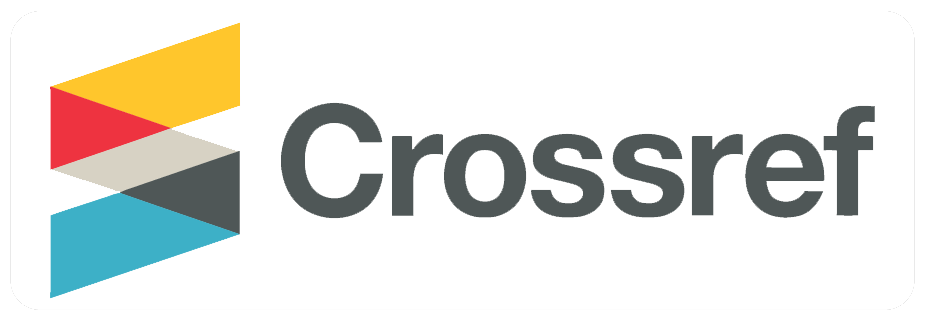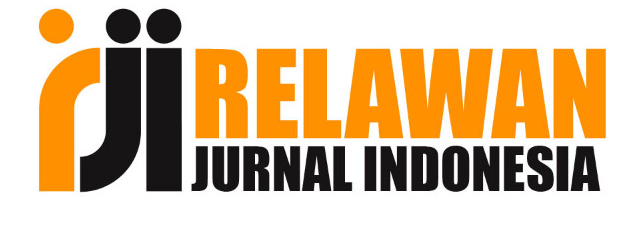Implementasi Knowledge Management System Pada Bank Tabungan Negara di Provinsi Sumatera Selatan
DOI:
https://doi.org/10.36982/jiig.v10i2.857Abstract
ABSTRACT
This study discusses the Implementation of Knowledge Management System (KMS) at the National Savings Bank (BTN) in South Sumatra, as a government bank. Given the role of banks in the economy and the extraordinary level of competition. This research is expected to be a reference in implementing KMS in banking. Banks need KMS to run business processes in the application of expertise in organizations, because KMS is able to improve the bank's core competencies. KMS acts as a liaison in the knowledge provider to broaden and deepen knowledge, contribute to overcoming competition between banks in raising funds to create forms of innovative product services provided to the public. This research is to identify the implementation of KMS in the organization, so it can be seen the success factors of KMS in banking institutions. Data collected by questionnaire, then made a research model. The survey results revealed that the KMS model suitable for use as a reference model for KMS implementation in BTN South Sumatra was influenced by factors, namely KM; organizational factors measurement objectives / specific strategies and leadership support, information technology and service innovation to consumers.
Keywords : Implementation KMS, KMS on Banking, KMS Success Factors
ABSTRAK
Penelitian ini membahas Implementasi Knowledge Management System (KMS) di Bank Tabungan Negara (BTN) di Sumatera Selatan, sebagai Bank pemerintah. Mengingat peran bank dalam perekonomian dan tingkat persaingan yang luar biasa. Penelitian ini diharapkan dapat menjadi referensi dalam mengimplementasikan KMS di perbankan. Bank membutuhkan KMS untuk menjalankan proses bisnis dalam penerapan keahlian dalam organisasi, karena KMS mampu meningkatkan kompetensi inti bank. KMS bertindak sebagai penghubung dalam penyedia pengetahuan untuk memperluas dan memperdalam pengetahuan, berkontribusi untuk mengatasi persaingan antara bank dalam mengumpulkan dana untuk menciptakan bentuk-bentuk layanan produk inovatif yang disediakan untuk publik. Penelitian ini untuk mengidentifikasi implementasi KMS dalam organisasi, sehingga dapat dilihat faktor keberhasilan KMS di lembaga perbankan. Data yang dikumpulkan dengan kuesioner, kemudian dibuat model penelitian. Hasil survei mengungkapkan model KMS yang cocok untuk digunakan sebagai model referensi implementasi KMS di BTN Sumatera Selatan dipengaruhi oleh faktor-faktor, yaitu KM; faktor organisasi tujuan pengukuran / strategi tertentu dan dukungan kepemimpinan, teknologi informasi dan inovasi layanan kepada konsumen.
Kata kunci : Implementasi KMS, KMS di Perbankan, Faktor Keberhasilan KMSReferences
Ahmed, P. K. 1999. Measurement practice for knowledge management. Journal of Workplace Learning, 11(8), 304–311.
Alavi, M., & Leidner, D. E. 2001. Knowledge Management and Knowledge Management Systems : Conceptual Foundations and Research Issues. MIS Quarterly, 25(1), 107–186.
Andria, V., & Triyulianti, E. 2011. Implementasi Manajemen Pengetahuan dan Dampaknya terhadap Kinerja Organisasi pada PT Telekomunikasi Indonesia , Tbk. Jurnal Manajemen Dan Organisasi, II(2), 154–171.
Arora, R. 2002. Implementing KM – a balanced score card approach. Journal of Knowledge Management, 6(3), 240–249.
Becerra, I., Fernandez, & Sabherwal, R. 2010. Knowledge Management Systems and Processes (p. 360). London.
Bhatt, G. D. 2000. Organizing knowledge in the knowledge development cycle. Journal of Knowledge Management, 4(1), 15–26.
Binney, D. 2001. The Knowledge Management Spectrum - Understanding the KM Landscape. Journal of Knowledge Management, 5(1), 33–42.
Bots, P. W. G., & de Bruijn, H. 2002. Effective knowledge management in professional organizations: going by the rules. Proceedings of the 35th Annual Hawaii International Conference on System Sciences, 11, -. doi:10.1109/HICSS.2002.994051
Bowen, D. E., & Lawler, E. E. 1992. The empowerment of service workers: What, why, how and when.
Bowen, D. E., & Lawler, E. E. (1995). Empowering Service Employees Creating an Empowered State of Mind. Research Feature.
Bukowitz, W. R., & Williams, R. L. 2000. The Knowledge Management Fieldbook. The Knowledge Management Fieldbook (Revised ed., p. -). London: Prentice-Hall.
Carneiro, A. (2001). The role of intelligent resources in knowledge management. Journal of Knowledge Management, 5(4), 358–367.
Chong, C. W., & Chong, S. C. 2009. Knowledge management process effectiveness: measurement of preliminary knowledge management implementation. Knowledge Management Research & Practice, 7(2), 142–151. doi:10.1057/kmrp.2009.5
Choy, C. S., & Suk, C. Y. 2005. Critical Factors In The Successful Implementation Of Knowledge Management. Journal of Knowledge Management Practice, (1).
Cohen, J. 1998. Statistical Power Analysis fro the Behavioral Sciences (2nd ed., pp. 273–406). New Jersey: Departement Of Psychology.
Cohen, W. M., & Levinthal, D. A. 1990. Absorptive Capacity : A New Perspective on Learning and Innovation Wesley M . Cohen ; Daniel A . Levinthal Absorptive Capacity : A New Perspective on Learning and Innovation. Quarterly, Administrative Science Technology, 35(1), 128–152.
Davenport, T. H., De Long, D. W., & Beers, M. C. 1998. Successful knowledge management projects. Sloan Management Review, -(-), 43–58.
Davenport, T. H., & Prusak, L. 1998. Working Knowledge : How Organizations Manage What They Know. An ACM IT Magazine and Forum, 1–15.
Davenport, T. H., & Völpel, S. C. 2001. The rise of knowledge towards attention management. Journal of Knowledge Management, 5(3), 212–222.
Garavan, T. N., Gunnigle, P., & Morley, M. 2000. Contemporary HRD Research: A Triarchy of Theoretical Perspectives and Their Prescriptions for HRD. Journal of European Indutrial Taining, 24(2/3/4), 65–93.
Gold, A. H., Malhotra, A., & Segars, A. H. 2001. Knowledge management : An organizational capabilities perspective. Journal of Management Information Systems, 18(1), 185–214.
Grover, V., & Davenport, T. H. 2001. General Perspectives on Knowledge Management : Fostering a Research Agenda. Journal Management Information System, 18(1), 5–21.
Hahn, J., & Subramani, M. R. 2000. A Framework of Knowledge Management Systems : Issues and Challenges for Theory and Practice. In ICIS ’00 Proceedings of the twenty first international conference on Information systems (pp. 302–312).
Hasanali, F. 2002. Critical Success Factors of Knowledge Management, (-), 1–4.
Holsapple, C. W., & Joshi, K. D. 2000. An investigation of factors that influence the management of knowledge in organizations. Strategic Information Systems, 9(-), 235–261.
Horak, B. 2001. Dealing with human factors and managing change in knowledge management: a phased approach. Health Information Management, 21(3), 8–17.
Jarrar, Y. F., & Zairi, M. 2010. Knowledge Management : Learning for Organisational Experience Knowledge Management : Learning for Organisational Experience. Managerial Auditing Journal, 17(6), 322–332.
Jayasundara, C. C. 2008. Knowledge Management in Banking Industries : uses and opportunities. Journal of University Librarians Association of Sri Lanka, 12(-), 68–79.
Jennex, M. E., & Olfman, L. 2004. Assessing Knowledge Management Success / Effectiveness Models. Proceedings Ot the 37th Hawaii International Conference on System Sciences, 00(-), 1–10.
Jennex, M. E., & Olfman, L. 2006. A Model of Knowledge Management Success. International Journal of Knowledge Management, 2(3), 51–68.
Khalifa, Z. A., & Jamaluddin, M. Y. 2012. Key Success Factors affecting Knowledge Management Implementation in Construction Industry in Libya. Australian Journal of Basic and Applied Sciences, 6(5), 161–164.
Latan, H., & Ghozali, I. 2012. Partial least squares konsep , metode dan aplikasi menggunakan program WarpPLS2 . 0 untuk penelitian empiris (p. 224). Semarang: Badan Penerbit Universitas Diponegoro.
Lau, P. 2009. Knowledge Management ( KM ). The Hong Kong Management Association.
Lee, S. M., & Hong, S. 2002. An enterprise-wide knowledge management system infrastructure. Industrial Management and Data Systems, 102(1), 17–25.
Luan, J., & Serban, A. M. 2002. Technologies , Products , and Models Supporting Knowledge Management. New Directions for Institutional Research, -(113), 85–104.
Maier, R. 2002. Knowledge management systems : Information and communication technologies for knowledge management. Berlin: Springer-Verlag, 3, 732.
Moffett, S., Mcadam, R., & Parkinson, S. 2003. An empirical analysis of knowledge management applications. Journal of Knowledge Management, 7(3), 6–26. doi:10.1108/13673270310485596
Mondy, R. W., Noe, R. M., & Premeaux, S. 2002. Human Resource Management (8th ed.). Upper Saddle River, NJ: Prentice Hall.
Osei, K., & Adjei, K. 2015. Assessing Implementation of Knowledge Management Systems in Banks , a Case of Ghana, 5(1), 133–140.
Ribière, V. M., & Sitar, A. S. 2003. Critical role of leadership in nurturing a knowledge-supporting culture. Knowledge Management Research & Practice, 1(2), 39–48.
Robertson, M., & Hammersley, G. 2000. Knowledge management practices within a knowledge-intensive firm: the significance of the people management dimension. Journal of European Industrial Training, 24(2/3/4), 241–53.
Sharp, D. 2003. Knowledge Management Today : Challenges and Opportunities. Journal of Information Systems Mangement, 20(2), 32.
Singh, S. K. 2008. Role of leadership in knowledge management : a study. Journal of Knowledge Management, 12(4), 3–15. doi:10.1108/13673270810884219
Suryana. 2010. Metodologi penelitian (Buku Ajar., pp. 1–58). Jakarta: Universitas Pendidikan Indonesia.
Tiwana, A. 2002. The Knowledge Management Toolkit (2nd Editio., p. 2002).
Truch, E. 2001. Managing personal knowledge: The key to tomorrow’s employability. Journal of Change Management, 2(2), 102–5.
Wickramasinghe, N., & Mills, G. L. 2002. Integrating e-commerce and knowledge management — what does the Kaiser experience really tell us. International Journal of Accounting Information Systems, 3(2), 83–98.
Wong, K. Y., & Aspinwall, E. 2003. Is knowledge management equivalent to information technology? In Proceedings of the Fourth European Conference on Knowledge Management (Vol. 9, pp. 989–997). doi:10.1108/13673270510602773
Yahya, S., & Goh, W.-K. 2002. Managing human reesources toward achieving knowledge management. Journal of Knowledge Management, 6(5), 457–468.
Zack, M. H. 1999. Developing a Knowledge Strategy. California Management Review, 41(3), 125–145.
Downloads
Published
How to Cite
Issue
Section
License

This work is licensed under a Creative Commons Attribution-ShareAlike 4.0 International License.











